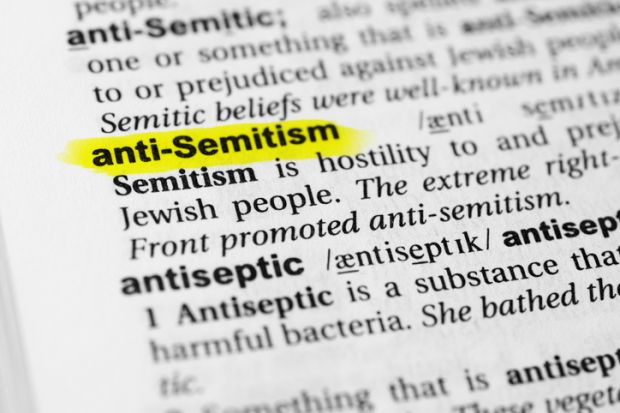More than 200 English higher education institutions have adopted the International Holocaust Remembrance Alliance working definition of antisemitism following pressure from ministers.
Figures published by the Office for Students on 10 November show that 95 universities have signed up, a rise from the 28 identified by the Union of Jewish Students last year.
Former education secretary Gavin Williamson had urged universities to adopt the definition. “If universities ignore the issue, I have asked officials to consider options e.g. directing the Office for Students to impose a new registration condition or suspending funding,” he said in October 2020.
But critics of that stance argue that the IHRA definition could stifle legitimate criticism of Israel in universities and harm academic freedom.
Among the absentees from the list is SOAS University of London. The institution’s director, Adam Habib, admitted earlier this year that there were “challenges of antisemitic behaviour, individual cases in SOAS, as exist in many other places”, but said it was possible to achieve a culture that does not “tolerate any racist or discriminatory behaviour…without adopting one or other definition”.
Chris Millward, the OfS’ director of fair access and participation, said the IHRA definition was “a useful way of understanding antisemitism, which enables universities and colleges to interpret and tackle antisemitism on campus”.
“The OfS published a statement of expectations for preventing and tackling harassment earlier this year, and we are clear that we will consider further action if universities do not take the steps necessary to meet these expectations during the next academic year,” Mr Millward said.
Michelle Donelan, the higher education minister, said “we must do all we can to root out antisemitism wherever we find it”.
“That requires a common understanding of what antisemitism is and the forms it takes in modern society…It is encouraging to see so many universities take up the IHRA definition in the past year – but there is more work to do to end the scourge of antisemitism on our campuses, and I will continue to work with university leaders to demand action and urge progress,” she said.
SOAS refunded a student £15,000 in fees after he said he was forced to abandon his studies because of a “toxic antisemitic environment”, it was reported in December.
Asked at an event in February whether SOAS would adopt the IHRA definition, Professor Habib said a “SOAS charter of values” had been adopted, making clear that the institution “abhors all forms of discrimination, including racism, including antisemitism, including Islamophobia, and that we’re going to stand firmly against all of this…in a manner that ensures academic freedom continues”.
He continued: “If somebody is teaching in a course about why the boycott and disinvestment campaign is an appropriate campaign in the Israeli conflict, we’re going to allow that. Because that’s allowed by the right of academic freedom.
“But we will allow as much the critique of the boycott and disinvestment campaign, by another scholar or by another student, because that is also to be defended by the agenda [the SOAS charter].”
Register to continue
Why register?
- Registration is free and only takes a moment
- Once registered, you can read 3 articles a month
- Sign up for our newsletter
Subscribe
Or subscribe for unlimited access to:
- Unlimited access to news, views, insights & reviews
- Digital editions
- Digital access to THE’s university and college rankings analysis
Already registered or a current subscriber?









